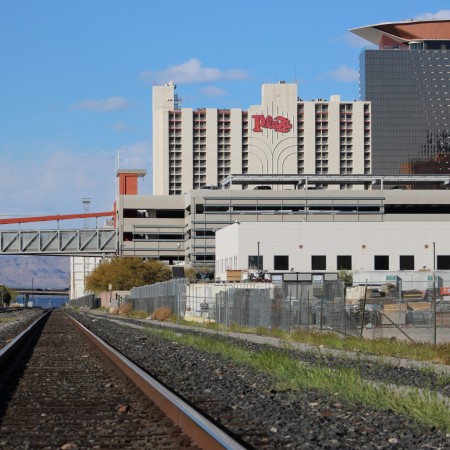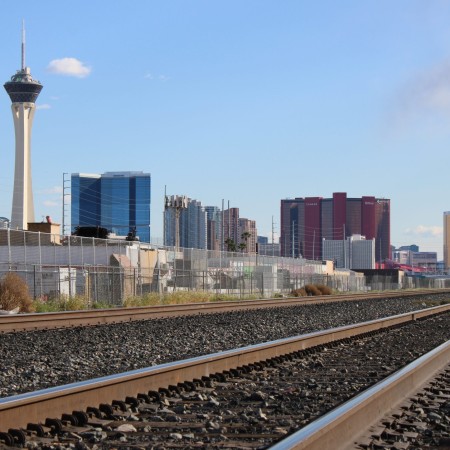
Anthony Paculan
"Though there were many mediums I could’ve chosen to convey this, I thought the lyricism of poetry would best reflect the cyclicality I saw in these events. I chose photography to capture this because I thought still moments would complement the “snapshot of time” I tried to show. "
Anthony Paculan
Downtrodden workers that ran the rails,
that ran the trains, that ran the world.
The backbone as the Great War waged—
braving grueling labor with a lower wage—
all to fuel the nation’s effort.
The War concluded, workers went unpaid,
even lower wages were approved.
It’s almost like the bosses say:
“You need us more than we need you.
We give you power, we built the roofs;
you need us more than we need you.
The water pumps through all our pipes;
you need us more than we need you.”
Union Station, 1922.
Las Vegas workers went on strike.
Disgruntled
And stormed the yard one pitch-black night.
Federal agents dispatched the mob,
U.P. packed up, moved out of town.
In the moment, it was a mighty loss,
but the win will come generations down.
Across the tracks, where the Station stood,
on the other side of a century.
The Plaza Hotel, 2024.
A labor union living a memory.
Expired contracts and wage disputes,
were put aside to protect the assets.
Before the power was held by few,
now it’s transferred to the masses.
The pickets started at their doors,
a “demonstration,” ‘til the strike ensues.
It’s almost like the workers say:
“You need us more than we need you.
We clean the rooms, we serve the food;
you need us more than we need you.
The Super Bowl’s coming here next month;
you need us more than we need you.”
I first learned about the 1922 Las Vegas railroad strikes in January 2024, just around the time Culinary Union 226 were picketing on Fremont Street. I couldn’t help but hear the echoes through time. Just 100 years ago, the city’s railroad workers stood up for their rights, which resulted in Union Pacific terminating all their jobs and moving out of the city. One hundred years later, the city’s hospitality workers stood up for their rights, resulting in better contracts and working conditions. The similarities between the two situations were highlighted by the stark contrast in the outcomes. Though there were many mediums I could’ve chosen to convey this, I thought the lyricism of poetry would best reflect the cyclicality I saw in these events. I chose photography to capture this because I thought still moments would complement the “snapshot of time” I tried to show.
EXPLORE MORE STORIES
Chi T. Mathias

Maria Soto

Cecilia Valdez



